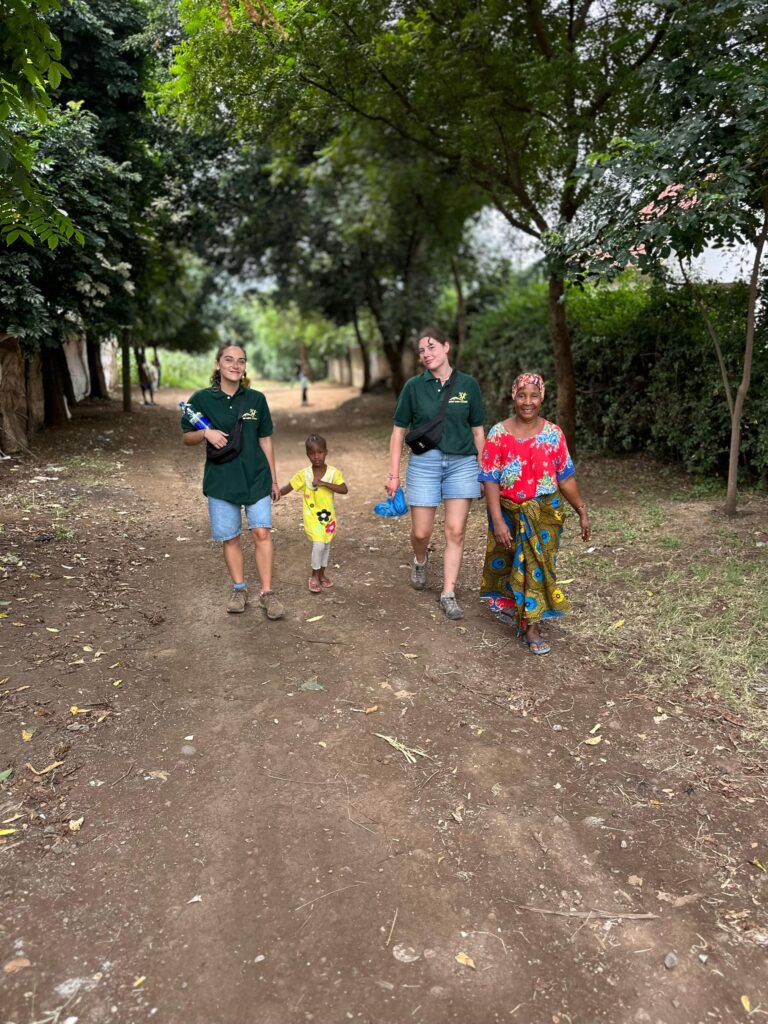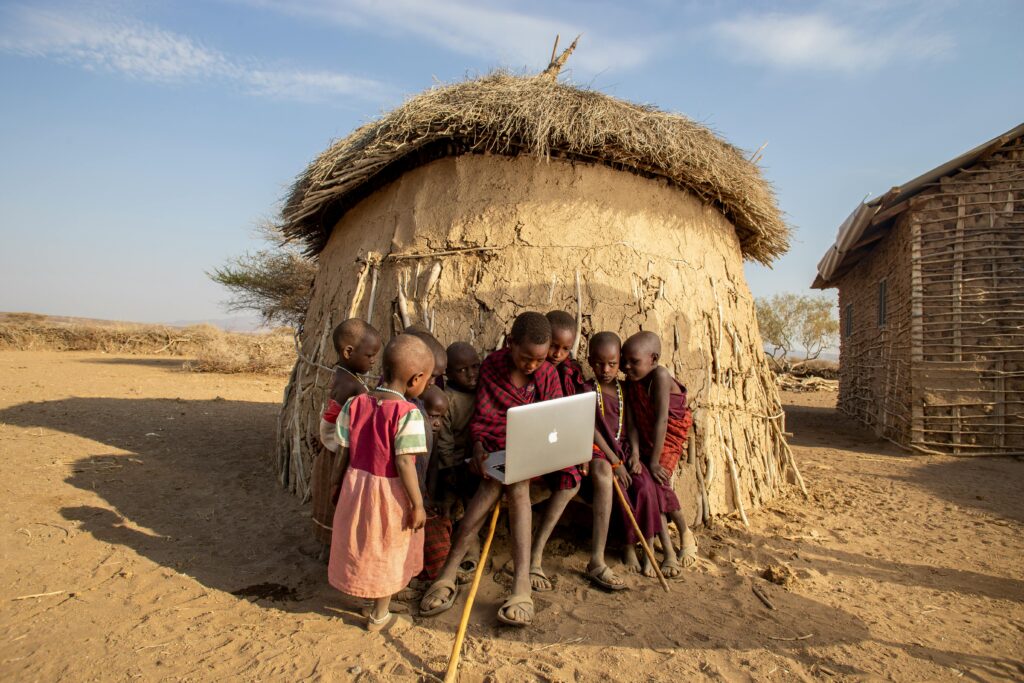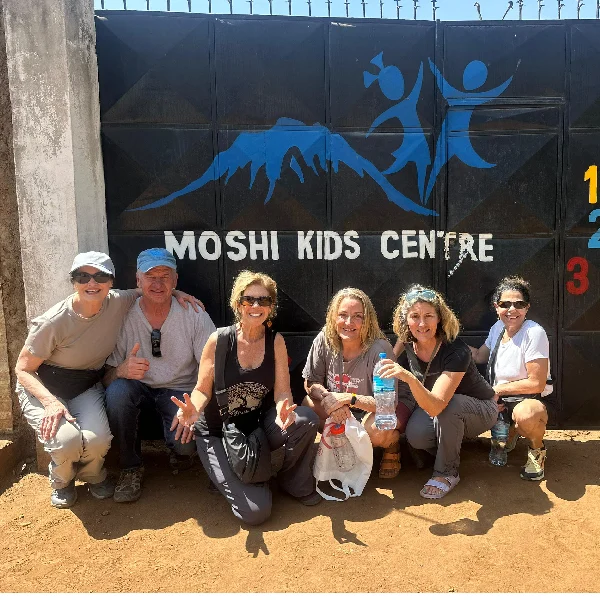In the heart of Tanzania, where the towering Mount Kilimanjaro overlooks vibrant communities like Moshi, a powerful movement is underway: early education in Tanzania is unlocking brighter futures for children and their families. For countless young minds, especially in underserved regions, access to quality preschool programs ignites a passion for learning, fosters resilience, and breaks the cycle of poverty. With only 397,935 of Tanzania’s 9.5 million children aged 0-5 enrolled in daycare, the need for investment in early childhood education is urgent. By empowering Moshi children and supporting educational charities, we can transform lives and build sustainable communities, much like innovative programs empowering Maasai women through beekeeping. This blog explores why early education is a cornerstone of progress, how it empowers children, and how you can join this life-changing mission.

The Foundation of a Brighter Future
The early years, from birth to age five, are a critical period when a child’s brain develops rapidly, forming the foundation for cognitive, social, and emotional skills. In Tanzania, where 26% of children live below the poverty line, early education is a lifeline for families striving for a better future.
Imagine a young boy in Moshi, his parents working long hours as farmers to provide basic needs. Without access to preschool, his days lack the stimulation needed to spark curiosity. But in a nurturing preschool program, he learns to count, sing, and share with peers, gaining confidence and hope. Studies from Morogoro show that 92% of preschoolers develop early numeracy skills, compared to just 60% of non-preschoolers, while 80% achieve strong literacy skills. These skills pave the way for higher school retention and better opportunities, breaking the poverty cycle.
Early education in Tanzania goes beyond academics. It fosters child empowerment by teaching resilience, dignity, and the ability to dream big. The Tanzanian government’s Quality Early Learning Package aims to expand access, but challenges like poverty and limited infrastructure persist. Educational charities, inspired by sustainable models like Maasai beekeeping initiatives, are stepping in to fill these gaps, creating lasting impact through community-driven solutions.
Empowering Moshi Children Through Preschool Programs
In Moshi, a town near Mount Kilimanjaro, preschool programs are lighting the way for a brighter future. The Moshi Kids Centre, an educational charity, has transformed the lives of over 800 children by providing free education, nutrition, and healthcare. Through a play-based curriculum filled with music, storytelling, and sports, the centre nurtures creativity and confidence.
A parent from a similar program in Dar es Salaam shared, “It feels like my child is at home because they provide such caring support.” This holistic approach ensures Moshi children thrive, with many graduates excelling in primary school and overcoming barriers once thought insurmountable.
Community play hubs in rural Moshi, supported by volunteers, extend this impact by offering safe spaces for learning and play where formal preschools are scarce. These programs are especially vital for girls, promoting gender equality by fostering leadership and self-esteem. Despite challenges like under-resourced classrooms, the resilience of Moshi’s communities shines through. Parents build temporary classrooms, volunteers decorate learning spaces, and donors provide books and supplies. Like the Maasai women who protect habitats through beekeeping, these efforts show how local action can create sustainable change, empowering Moshi children to shape their futures.

Educational charities are the heartbeat of early education in Tanzania, much like beekeeping initiatives that empower Maasai women. Organizations like Zara Charity, Tanzania Education Fund, and TECDEN’s Malezi Campaign are driving progress by building schools, training teachers, and supporting communities. Zara Charity, for example, not only funds education but also empowers women through sustainable projects like the Asali beekeeping initiative, which provides income while protecting ecosystems. Similarly, the Tanzania Education Fund offers scholarships to keep children in school, while TECDEN trains caregivers to deliver quality early education.
Moshi Kids Centre relies on donations to provide meals, supplies, and medical care, ensuring poverty doesn’t block learning. A coordinator shared, “We aim to empower every child to reach their full potential.” These charities foster sustainability by engaging communities, much like Maasai beekeepers who reinvest honey profits into education. Global supporters can make a difference by sponsoring a child, donating, or volunteering, creating a ripple effect of empowerment that transforms families and communities.
Overcoming Barriers, Building Resilience
Early education in Tanzania faces significant challenges. Poverty prevents many families from affording preschool fees, while rural areas lack proper school facilities, often relying on temporary structures. Teacher shortages further strain quality education, with undertrained staff struggling to meet demand. Yet, solutions are emerging, inspired by sustainable practices like those in Maasai communities.
The Quality Early Learning Package trains teachers and develops culturally relevant curricula, while community-based hubs in Moshi provide low-cost education. Digital tools for literacy are being piloted in cities like Dar es Salaam, and advocacy campaigns raise awareness about the importance of early education.
These efforts mirror the resilience of Maasai women who, through beekeeping, protect forests and earn income to send their children to school. For example, Maria Shinini, a Maasai beekeeper in Monduli, processes 300 liters of honey per season, funding her children’s education. Such models show how education and sustainable practices can intersect, creating lasting change for Tanzania’s children.

A Shared Mission for a Brighter Tomorrow
Supporting early education in Tanzania is a global mission rooted in solidarity, much like supporting Maasai communities through sustainable initiatives. By investing in educational charities, we give children the gift of curiosity, parents the assurance of safety, and communities the tools for progress. A donation to Moshi Kids Centre can provide a month of meals and education, while volunteering can inspire children through storytelling or play. Sharing stories on platforms like X, using hashtags like #EarlyEducation or #ChildEmpowerment, amplifies this message, encouraging others to join the cause.
AddJoining Hands to Shape Tanzania’s Future Your Heading Text Here
The journey to a brighter future begins with small, meaningful steps. Sponsoring a preschooler through Moshi Kids Centre or Zara Charity provides essential resources like meals and books. Donating to the Tanzania Education Fund supports sustainable education projects, while volunteering in Moshi brings inspiration to young learners. Like Maasai beekeepers who protect ecosystems while building livelihoods, every action counts. By supporting early education, we empower Tanzania’s children to become leaders, innovators, and dreamers who shape a thriving future.
unlock their dreams
Tanzania’s children are brimming with laughter, resilience, and potential. With preschool programs and educational charities, we can unlock their dreams, just as beekeeping has empowered Maasai women to transform their communities. The journey starts with a pencil, a song, and a safe classroom. It starts with your compassion. Join us today by donating to Zara Charity, volunteering in Moshi, or sharing this story. Together, we can build a brighter future for Tanzania, one child at a time.
Frequently Asked Questions
1. Why is early education critical in Tanzania?
Early education builds cognitive and social skills, reduces dropouts, and breaks poverty cycles. Studies show preschoolers achieve 92% numeracy and 80% literacy rates, setting them up for success.
2. How do preschool programs in Moshi empower children?
Programs like Moshi Kids Centre offer free education, nutrition, and healthcare, helping over 800 children excel in primary school and fostering gender equality through empowering activities.
3. What challenges does early education in Tanzania face?
Poverty, inadequate infrastructure, and teacher shortages limit access, but initiatives like the Quality Early Learning Package and community hubs are driving progress.
4. How can I support educational charities in Tanzania?
Sponsor a child through Moshi Kids Centre or Zara Charity, donate to the Tanzania Education Fund, volunteer in communities, or share stories to raise awareness.

